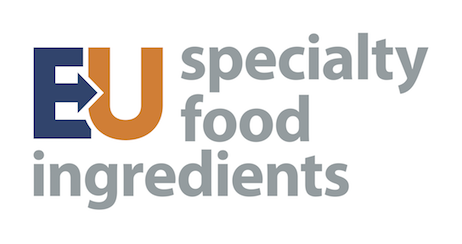EU Specialty Food Ingredients News
2012-12 EU Specialty Food Ingredients first Symposium – 21 November 2012
Dr Volker Heinz, German Institute of Food Technologies (DIL) introduced the symposium to the contribution that food ingredients could bring to tackling the major global dilemmas confronting food production and consumption. Pointing to European and worldwide trends in obesity, Dr Heinz discussed the capacity of the industry to reduce calorie intake through increasing low-energy volume in foods. A further important task for food technologists is to respond to the long-term trends in food demand. For instance, growth in meat consumption and limited global capacity to increase crop production will inevitably stimulate the search for consumer-acceptable alternatives to meat. Dr Heinz acknowledged that there is still a disparity today between the technological possibilities and consumer willingness to embrace such products. Food scarcity will also necessitate greater attention to food wast. Improving the long-term stability of foods through enhanced food ingredients would be one important strategy for reducing waste. According to Dr Heinz, fighting obesity and overweight is another area where specialty food ingredients can play a strategic role, especially for the development of reduced calory intake by increased low energy volume in foods. Dr Heinz finally emphasised the complexity of managing these varying trends, whilst ensuring that EU agriculture and food industry maintains its competitive position in the global marketplace.
Philippe Roux, DG SANCO, European Commission, reviewed the progress that had been made in the context of the EU Platform for Action on Diet, Physical Activity and Health. He described the action-oriented approach of this multi-stakeholder forum, in which commitments have been made in a range of areas including consumer information, education, physical activity promotion, marketing and advertising. He pointed in particular to the growing multinational nature of the initiatives undertaken. Preliminary evaluation of the platform's performance pointed to a significant impact in areas such as advertising/marketing to children, promotion of physical activity, food reformulation and growing attention to out-of-home nutrition information. For example, more than 15 million children have benefited from Platform actions encouraging physical activity. At the same time, Mr Roux emphasised the need to improve on existing commitments and ensure that initiatives were reaching society's most vulnerable groups. He reported that the Commission’s final evaluation of the Platform was expected for spring 2013.
Peter de Cock, Cargill, presented some of the challenges for the food ingredient industry in improving the nutritional qualities as demanded today by both consumers and public policymakers. Food ingredient producers are at the forefront of industry initiatives to respond to these trends. These companies are developing strategies to help food manufacturers both to reduce calories and improve the characteristics of food. However, removing fats and sugars from foods is not a simple process, often significantly altering the taste and texture of foods, as Mr de Cock illustrated in his presentation. The major challenge for the ingredient industry is therefore to develop technical solutions that can best meet health demands whilst being fully acceptable to the tastes of modern consumers. Answers are being found. However, this research is constantly progressing, as companies strive for more complete solutions and to meet consumers’ evolving expectations. European regulations can facilitate the improvement of food's nutritional qualities by fully taking into account the technical constraints of this process.
Bas van Buijtenen, DSM Nutritional Products, provided the symposium with a business perspective on meeting the EU's nutrition and health goals. Focusing in particular on vitamins, Mr van Buijtenen set out both the opportunities and challenges offered by the EU regulatory framework. A crucial consideration for food ingredient producers seeking to push the frontiers of existing nutrition research is the anticipated market return on initial investment. In this context, the clarity and predictability of regulatory processes and their impact on time to market are essential. Protecting the consumer, but ensuring that they get the maximum benefit from advances in nutrition science is a delicate balance for public policymakers. On the other hand, improved nutrition has proven to provide significant societal benefits by reducing risk of disease, improving overall health and quality of life, and thus reducing the burden of medical costs on society. However there is a danger in Europe that today's regulatory framework puts a brake on scientific research, dampening the innovation process which is essential for the global competitiveness of the EU food ingredient industry. A holistic approach must be taken to EU policy which nurtures the synergies between science, business and consumer health.
News
Press Room
If you're a journalist or PR person, we have complete information packs on various subjects.

